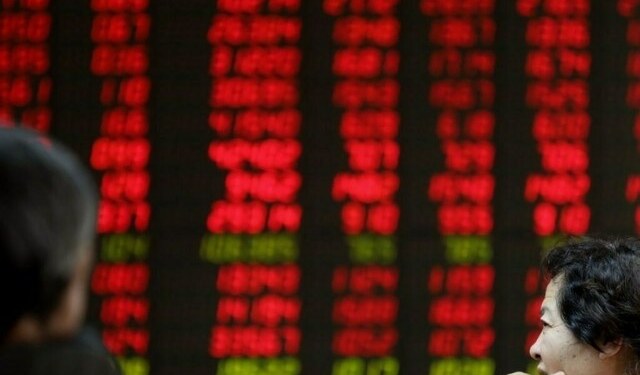 © Reuters. FILE PHOTO – A logo of Credit Suisse is pictured on a building in Geneva
© Reuters. FILE PHOTO – A logo of Credit Suisse is pictured on a building in GenevaBy Trevor Hunnicutt
NEW YORK (Reuters) – The legal fight over a complex Credit Suisse (SIX:) financial instrument betting on stock market swings is expanding, with a new lawsuit targeting one of the product’s service providers.
An investor on Thursday sued both the bank and the service provider, a unit of Janus Henderson Group PLC, over the VelocityShares Daily Inverse VIX Short-Term Exchange-Traded Note (ETN).
That product, traded under the ticker XIV, lost most of its value after the U.S. stock market closed on February 5 in an incident now being probed by U.S. securities regulators. Credit Suisse later took the notes off the market.
Both companies have denied wrongdoing.
The lawsuit, which follows another filed on Wednesday against Credit Suisse and its executives, expands the focus to asset manager Janus Henderson Group.
Janus Index & Calculation Services LLC was responsible for providing estimates of the notes’ value.
On Feb. 5, those estimations slipped from $72.59 at 4 p.m. to $4.22 by 5:10, during which time they were not updated, as was typical, every 15 seconds.
Investors said lofty estimates led them to buy the notes at inflated prices. Credit Suisse did not announce the market disruption and Janus misreported the notes’ value, according to the most recent lawsuit filed in U.S. District Court in Manhattan.
Credit Suisse said the risks were disclosed to investors, including that the estimates could be delayed by a data or market disruption.
“Credit Suisse did not engage in any conduct designed to mislead investors regarding XIV’s value or cause the February 5, 2018, decline in XIV’s price,” the bank said in an emailed statement on Wednesday.
Janus Henderson has not responded to requests for comment from Reuters.
“When VIX goes up as extraordinarily as it did overnight and yesterday, I think a short VIX strategy could be expected to have the sort of change in value that it had,” said Dick Weil, Janus’s co-chief executive, on an February 6 earnings call.
“So from what I can see, the volatility products offered are performing, you know, as advertised, and that’s obviously very important to us.”
He said some of the products marketed by the company are not intended for “buy-and-hold” investors.
Investors flocked to XIV, launched in 2010, for profits that grew in calm markets. XIV booked 585 percent gains for the two years ended Feb. 1.
Since the selloff, banks and asset managers have since tamed or closed competing products also indirectly tied to Wall Street’s “fear gauge,” the .
Fusion Media or anyone involved with Fusion Media will not accept any liability for loss or damage as a result of reliance on the information including data, quotes, charts and buy/sell signals contained within this website. Please be fully informed regarding the risks and costs associated with trading the financial markets, it is one of the riskiest investment forms possible.
Source: Investing.com




























